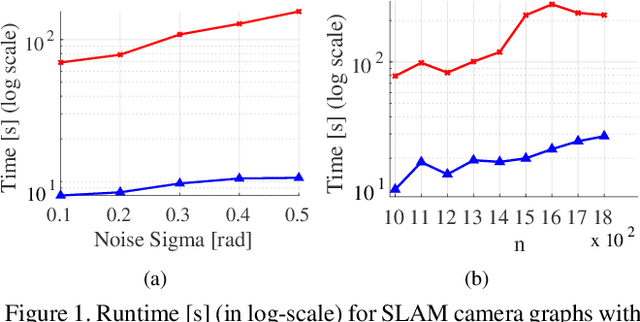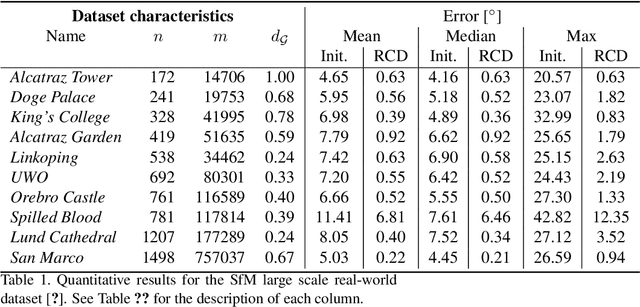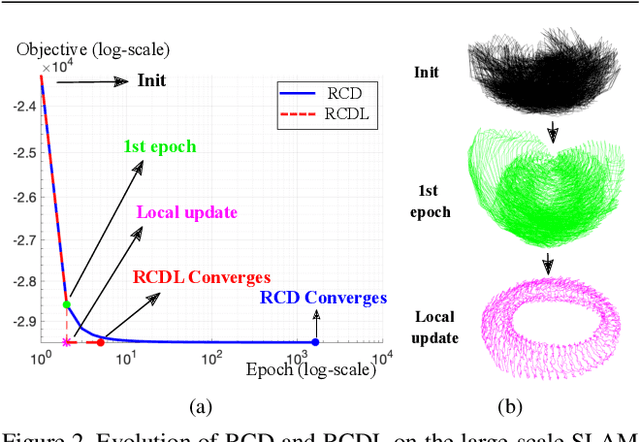Álvaro Parra
Rotation Coordinate Descent for Fast Globally Optimal Rotation Averaging
Mar 16, 2021



Abstract:Under mild conditions on the noise level of the measurements, rotation averaging satisfies strong duality, which enables global solutions to be obtained via semidefinite programming (SDP) relaxation. However, generic solvers for SDP are rather slow in practice, even on rotation averaging instances of moderate size, thus developing specialised algorithms is vital. In this paper, we present a fast algorithm that achieves global optimality called rotation coordinate descent (RCD). Unlike block coordinate descent (BCD) which solves SDP by updating the semidefinite matrix in a row-by-row fashion, RCD directly maintains and updates all valid rotations throughout the iterations. This obviates the need to store a large dense semidefinite matrix. We mathematically prove the convergence of our algorithm and empirically show its superior efficiency over state-of-the-art global methods on a variety of problem configurations. Maintaining valid rotations also facilitates incorporating local optimisation routines for further speed-ups. Moreover, our algorithm is simple to implement; see supplementary material for a demonstration program.
Globally Optimal Contrast Maximisation for Event-based Motion Estimation
Mar 16, 2020



Abstract:Contrast maximisation estimates the motion captured in an event stream by maximising the sharpness of the motion compensated event image. To carry out contrast maximisation, many previous works employ iterative optimisation algorithms, such as conjugate gradient, which require good initialisation to avoid converging to bad local minima. To alleviate this weakness, we propose a new globally optimal event-based motion estimation algorithm. Based on branch-and-bound (BnB), our method solves rotational (3DoF) motion estimation on event streams, which supports practical applications such as video stabilisation and attitude estimation. Underpinning our method are novel bounding functions for contrast maximisation, whose theoretical validity is rigorously established. We show concrete examples from public datasets where globally optimal solutions are vital to the success of contrast maximisation. Despite its exact nature, our algorithm is currently able to process a 50,000 event input in 300 seconds (a locally optimal solver takes 30 seconds on the same input), and has the potential to be further speeded-up using GPUs.
 Add to Chrome
Add to Chrome Add to Firefox
Add to Firefox Add to Edge
Add to Edge